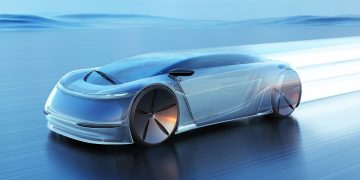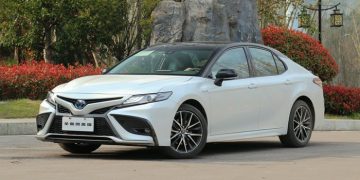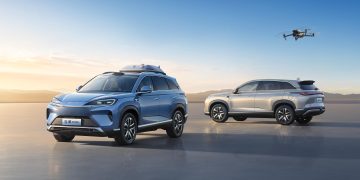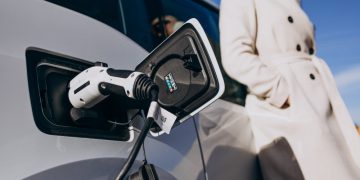The automotive industry is experiencing an unprecedented transformation. With the global shift toward electrification, traditional internal combustion engine (ICE) vehicles are gradually being replaced by electric vehicles (EVs). This transformation is not only changing the way cars are designed, built, and sold, but it is also fundamentally reshaping the automotive supply chain. From raw materials to manufacturing processes and distribution networks, the entire ecosystem is evolving to support the growing demand for clean, sustainable, and technologically advanced electric mobility.
But the question arises: How will the electrification wave reshape the automotive supply chain? What changes will traditional automakers need to make to stay competitive in this new world of electric mobility? And what challenges and opportunities lie ahead for companies navigating this dramatic shift?
In this article, we explore the far-reaching impacts of the electric vehicle revolution on the automotive supply chain, the key areas that will be most affected, and how global carmakers are adapting to ensure they remain relevant in a rapidly changing market.
The Shift to Electrification: A Game-Changer for the Automotive Supply Chain
1. The Changing Role of Key Components
One of the most significant changes brought about by the rise of electric vehicles is the shift in the importance of components. In traditional gasoline-powered cars, the engine, transmission, and exhaust system are the core components, consuming a significant portion of the vehicle’s production costs and resources. However, in electric vehicles, the central components are entirely different, with a heavy emphasis on batteries, electric drivetrains, and power electronics.
- Batteries: The battery pack is the most expensive and critical component in an electric vehicle. It determines the vehicle’s range, charging time, and performance. As the demand for EVs grows, automakers will need to secure a reliable and cost-effective battery supply chain. This will require partnerships with battery manufacturers like LG Chem, CATL, and Panasonic, and investments in battery production facilities. The lithium-ion battery is currently the standard, but future innovations such as solid-state batteries may further disrupt this segment.
- Electric Drivetrains: Unlike traditional ICE vehicles, EVs rely on electric motors and related components like inverters and power control units. Automakers will need to partner with specialists in electric motor technology to optimize power delivery, performance, and efficiency in their EV offerings. Companies like BYD and Tesla have already become leaders in electric drivetrain technology, giving them a significant advantage in the EV market.
- Semiconductors and Power Electronics: The increasing reliance on semiconductors and advanced power electronics in EVs will also reshape the supply chain. Modern EVs depend on sophisticated electronics for everything from battery management systems to autonomous driving features. Shortages in semiconductor supply, as witnessed during the global chip crisis in 2020 and 2021, have highlighted the vulnerability of the supply chain in this area. Automakers may have to source specialized chips and work closely with technology suppliers to ensure their EVs are equipped with the latest innovations.
2. Raw Materials and Mining: A New Focus on Sustainability
The transition to electric vehicles is driving a significant shift in the demand for raw materials, particularly for the production of batteries. Materials like lithium, cobalt, nickel, and graphite are critical to the development of high-performance electric vehicle batteries, and the global supply chains for these minerals are being reshaped to meet the growing demand.
- Securing Raw Materials: Automakers and battery manufacturers are facing the challenge of securing a consistent and sustainable supply of these key materials. This has led to strategic partnerships and long-term supply agreements with mining companies. For example, General Motors has partnered with Lithium Americas to develop lithium mines in the U.S. Similarly, Volkswagen and BMW are making significant investments in securing raw materials for their battery supply chains.
- Sustainable Sourcing: As concerns about the environmental impact of mining grow, automakers are under increasing pressure to ensure that the raw materials they use are sourced sustainably. This includes ensuring ethical labor practices, reducing the environmental footprint of mining operations, and exploring alternative materials like solid-state batteries or sodium-ion batteries that require fewer critical raw materials.
- Recycling and Reuse: In response to sustainability concerns, the recycling of used batteries is becoming a major focus. Automakers are investing in battery recycling technologies to recover valuable raw materials and reduce dependence on newly mined resources. This will help create a more circular economy within the automotive supply chain, where raw materials are reused and repurposed, minimizing waste and environmental harm.
3. Manufacturing Overhaul: From ICE to EV Production
The shift to electric vehicles requires automakers to reimagine their manufacturing processes. The transition from ICE vehicles to EVs is not just about changing the types of parts being used but also about overhauling entire production lines, assembly plants, and manufacturing workflows.
- Factory Reconfiguration: Traditional manufacturing facilities are designed around the assembly of internal combustion engine vehicles, which involves complex systems of engines, exhausts, and transmissions. EVs, on the other hand, require a completely different set of production processes, particularly when it comes to assembling the battery packs and electric drivetrains. Automakers must therefore invest heavily in retooling and upgrading their factories to support EV production. This includes building specialized facilities for battery assembly and electric motor production.
- Automation and Advanced Manufacturing: The complexity of EV manufacturing and the need for precision and efficiency are driving the adoption of advanced manufacturing technologies such as robotics, 3D printing, and AI-driven assembly lines. Automakers are investing in automated production systems to streamline the manufacturing process and reduce labor costs while ensuring the high-quality standards required for electric vehicles.
- Scale and Cost Efficiency: Achieving economies of scale in EV production will be essential to make electric vehicles affordable for mass-market consumers. Traditional automakers will need to leverage their existing global supply chains and manufacturing infrastructure to scale up production of electric vehicles quickly. This could involve ramping up production volumes, optimizing supply chains for cost efficiency, and ensuring that battery costs are reduced over time.

4. New Sales Channels and Customer Experience
The way electric vehicles are sold is also evolving, and this is creating significant shifts in the automotive supply chain. Traditionally, automakers have relied on a vast network of dealerships and showrooms to sell their vehicles. However, with the rise of electric vehicles and the shift toward online retailing, these traditional sales models are being challenged.
- Direct-to-Consumer Sales: Companies like Tesla have pioneered the direct-to-consumer model, bypassing the traditional dealership system. This allows automakers to establish a more personalized relationship with their customers, offer better pricing transparency, and streamline the purchasing process. Traditional automakers are beginning to follow suit, with some adopting online platforms for purchasing EVs directly from the manufacturer.
- Vehicle Customization and Digital Sales: Consumers today expect a more customized buying experience, and digital tools are playing an increasingly important role in how customers choose and configure their EVs. Many automakers are integrating virtual showrooms, augmented reality (AR) experiences, and online configurators to enhance the purchasing process. This shift is also affecting the logistics and distribution systems within the automotive supply chain, as vehicles may need to be delivered directly to consumers rather than through traditional dealer networks.
- Charging Infrastructure: As demand for electric vehicles grows, so does the need for widespread and reliable charging infrastructure. Automakers are partnering with charging network providers and energy companies to build out charging stations and support the growing EV ecosystem. The expansion of home charging solutions and the creation of fast-charging networks will be critical to the success of EV adoption and will require extensive collaboration between automakers, energy providers, and local governments.
5. New Business Models: Sustainability and Circular Economy
As electric vehicles continue to evolve, so too will the business models that support them. Sustainability will play a pivotal role in reshaping the automotive supply chain, with increasing pressure on companies to adopt a circular economy approach.
- Vehicle-as-a-Service: The idea of shared mobility is gaining traction as more consumers opt for electric vehicle leasing or subscription-based models instead of traditional ownership. Companies like GM and Volkswagen are exploring new mobility-as-a-service (MaaS) models, where customers can access EVs on a flexible, on-demand basis. This shift could lead to a reduction in the overall number of cars sold, but it could open up new revenue streams through services like car-sharing, ride-hailing, and charging stations.
- Battery Leasing and Second-Life Applications: As EV batteries age, they may no longer provide the same level of range or performance. However, these batteries can still have a second life in applications like energy storage. Automakers may increasingly offer battery leasing programs or create businesses focused on repurposing used EV batteries for stationary applications, contributing to a more sustainable, circular business model.
Conclusion: The Future of the Automotive Supply Chain in the EV Era
The electrification wave is reshaping the global automotive supply chain in ways that are both challenging and exciting. As traditional automakers transition to electric vehicles, they are confronting new requirements in terms of manufacturing, raw materials, and distribution channels. At the same time, they are presented with significant opportunities to innovate, create new business models, and build more sustainable supply chains that contribute to the global push for carbon-neutral transportation.
The companies that will thrive in the electric future are those that can adapt quickly, form strategic partnerships, and invest in the technologies and infrastructure needed to build world-class electric vehicles. The transition may be difficult, but it also presents an exciting opportunity to reshape the automotive industry for a cleaner, greener future.











































